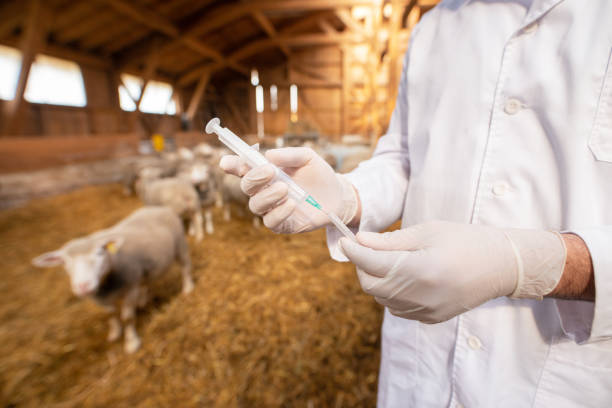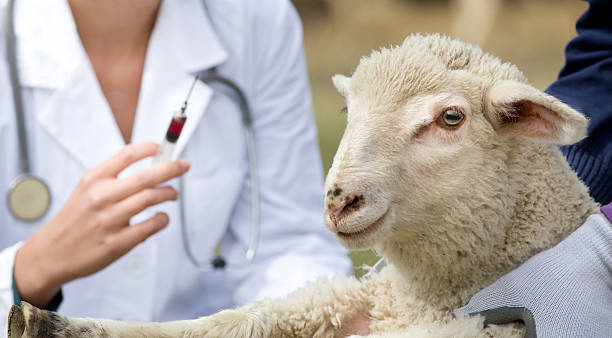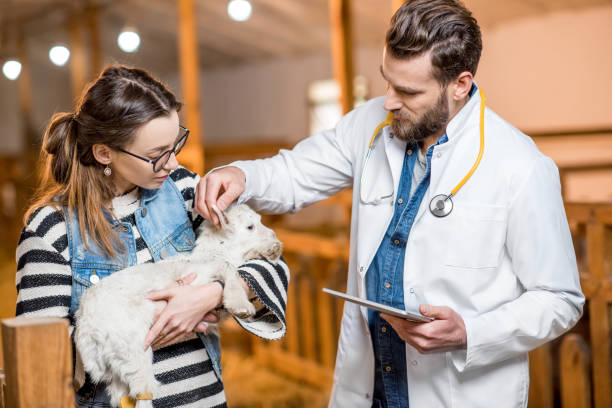
Have you noticed your sheep acting strangely lately? Have you lost your appetite or are you moving less than usual? If you suspect that your sheep may be sick, it is important to take prompt action to help it recover. In this article, we will explain how to tell if your sheep is sick, symptoms and what to do to treat it.

Common symptoms

There are several symptoms that may indicate that your sheep is sick. Some of the most common include:
- Loss of appetite: if you have stopped eating or drinking, grind your teeth or pursed your lips.
- Behavioral changes: unwillingness to move, rigid posture, licking or scratching, apathy, etc.
- Changes in the hair or skin: For example, if red spots or skin irritation appear.
- Fever: Normal rectal temperature for sheep is between 38.3 and 39.9 °.
- Runny nose.
- Agitated breathing.
- Changes in urine or stool: in the amount or consistency of urine or stool.
- Redness or hardness in the udder.
What to do before being seen by a veterinarian

Before we begin, it is important to note that if you suspect your sheep is seriously ill, you should call a veterinarian as soon as possible. These professionals are qualified to diagnose and treat your sheep effectively.
However, while you are waiting for the arrival of the veterinarian, there are some things you can do to avoid aggravating the situation, such as:
- Provide your sheep with a comfortable, protected and dry place.
- Provide your sheep with an adequate
adequate diet:
you can add supplements such as extremely high quality cereal mixes and corn silage. - Cleans any nasal or ocular secretions. You can use a soft, damp cloth to help you.
- Use medications properly: If your veterinarian has prescribed medications for your sheep, be sure to administer them properly and according to the veterinarian’s instructions.
Although it is important to remember that preventing disease is always better than treating it. Therefore, it is important that you take into account all the care and particular needs (such as hoof trimming or shearing) and have all the vaccination and deworming records up to date.
